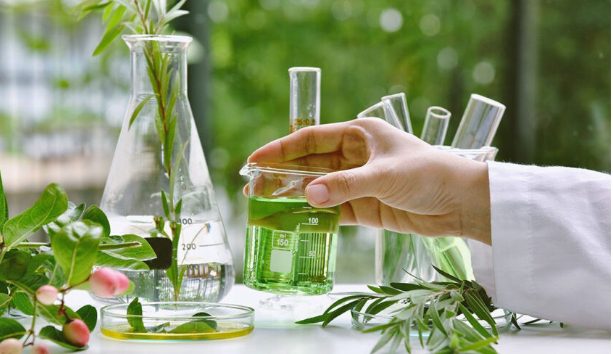Because of their inherent qualities and possible skin-benefits, plant extracts have become increasingly popular in the skincare sector. These plant extracts, which come from a variety of sections including leaves, flowers, seeds, and roots, are full of bioactive substances that help improve skin health and appearance in general. In this thorough investigation, we will delve into the varied realm of plant extracts utilised in skincare products, going over their histories, characteristics, and possible uses in skincare.
- Aloe Vera Extract: Aloe Vera is one of the most well-known and frequently utilised plant extracts in cosmetics. This extract is well known for its calming and moisturising qualities, and it comes from the succulent Aloe plant. Aloe Vera is a well-liked option for treating sunburns, rashes, and enhancing general skin moisture because of its abundance of vitamins, minerals, and antioxidants.
- Green Tea Extract: Packed full of antioxidants, including catechins, green tea is made from the leaves of the Camellia sinensis plant. These antioxidants assist in shielding the skin from free radicals, which may hasten the ageing process. Because green tea extract has anti-inflammatory and anti-aging properties, it is frequently used in skincare products.
Also Read – Fruit Powders
- Chamomile Extract: The Asteraceae family of flowers is the source of chamomile, which is widely recognised for its sedative and relaxing qualities. To reduce skin sensitivity, redness, and irritation, chamomile extract is frequently utilised in skincare products. It is especially helpful for people whose skin is reactive or sensitive.
- Lavender Extract: Famous for its calming effects and advantageous effects on skin, lavender also has a lovely scent. Lavender extract is a well-liked option for enhancing skin health because of its antibacterial and antioxidant qualities. It might aid in improving complexion uniformity and calming inflamed skin.
- Jojoba Oil: A common ingredient in skincare products, jojoba oil is sourced from plants and is not a typical extract. This oil, which comes from jojoba plant seeds, is very similar to the sebum produced naturally by the skin. It works well for both dry and oily skin types because of its moisturising qualities and widespread usage to regulate oil production.
- Rosehip Extract: is derived from the seeds of wild roses and is a valuable source of vitamins, antioxidants, and vital fatty acids. The ability of this extract to encourage skin regeneration, lessen wrinkles and scars, and enhance general skin texture makes it valuable.
- Ginseng Root Extract: Renowned for its invigorating and revitalising qualities, ginseng root extract is used. Through increased blood flow, collagen synthesis, and skin suppleness, ginseng extract is frequently used in skincare products to help achieve a more youthful appearance.
- Calendula Extract: A popular remedy for inflammation and infections, calendula is made from marigold flowers. To relieve irritated skin, lessen redness, and accelerate healing, calendula extract is frequently applied. Those with dry or sensitive skin will benefit from it the most.
- Extract from Licorice Root: The Glycyrrhiza glabra plant’s roots are used to make the extract. Its ability to reduce hyperpigmentation and lighten the skin makes it valuable. Licorice root extract may help minimise the appearance of dark spots and balance out skin tone.
- Turmeric Extract: The bright yellow spice turmeric includes a substance called curcumin, which has anti-inflammatory and antioxidant qualities. Turmeric extract is frequently used in skincare products to treat inflammation, redness, and acne. It could make the complexion more even and clear.
In conclusion, a rising understanding of natural components and their potential advantages is reflected in the usage of plant extracts in skincare products. These plant-based components have a variety of skincare advantages, from the calming qualities of aloe vera to the antioxidant-rich green tea extract. Plant extract research and application are expected to become more important in the ever-changing skincare industry as the need for sustainable and natural skincare products grows.



































